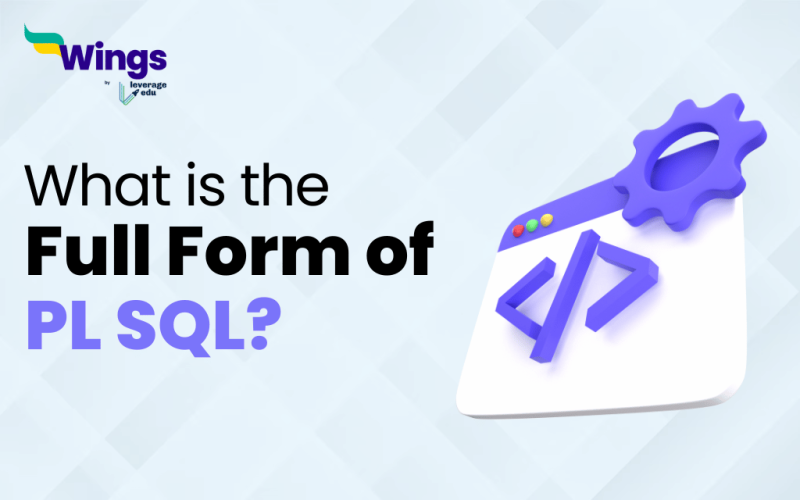The full form of PL SQL is Procedural Language/Structured Query Language”. It’s a powerful extension of the SQL language, designed to enhance the capabilities of database management systems.
Procedural Language: The “PL” part of PL/SQL refers to its ability to include procedural constructs like loops, conditional statements, and exception handling. This allows developers to create complex and dynamic programs within the database.
Structured Query Language: The “SQL” component of PL/SQL signifies its close relationship with the standard SQL language. While SQL is fantastic for managing data, PL/SQL takes it a step further by adding programmability, enabling developers to create functions, procedures, and triggers to manipulate data.
Also Read: What is the full form of Sorry?
Why is PL SQL Important?
PL SQL is important as it has several advantages:
1. Database Customization: It allows developers to create custom functions and procedures tailored to specific business needs. This customization enhances the efficiency and flexibility of database operations.
2. Data Integrity: PL SQL helps ensure data integrity by enforcing business rules and constraints at the database level. This prevents erroneous data from entering the system.
3. Modularity: With PL SQL, you can break down complex tasks into smaller, manageable units of code. This promotes code reusability and simplifies maintenance.
4. Security: Also, by encapsulating logic in the database, PL SQL reduces the risk of security vulnerabilities, as sensitive operations can be controlled more rigorously.
5. Performance: Similarly, PL SQL’s tight integration with the database engine results in improved performance, as it reduces the need for data to travel between the database and application layers.
6. Error Handling: Additionally, PL SQL provides robust error-handling mechanisms, making it easier to identify and address issues in the database.
Also Read: What is the full form of BIO?
Now you know that the full form of PL SQL is Procedural Language/Structured Query Language. It is a fundamental component in the world of database management. Its ability to combine the flexibility of a procedural language with the data manipulation capabilities of SQL makes it an indispensable tool for developers and database administrators alike.
Also Read: What is the full form of RTS?
This was all about the full form of PL SQL. For more abbreviations like this, you can check out our blog on Full Forms. For more abbreviations like this, you can check out our 300+ full forms list!
 One app for all your study abroad needs
One app for all your study abroad needs















 45,000+ students trusted us with their dreams. Take the first step today!
45,000+ students trusted us with their dreams. Take the first step today!
